Athens: The First-Time Visitor’s Essentials
Ten must-do experiences in Athens, from...
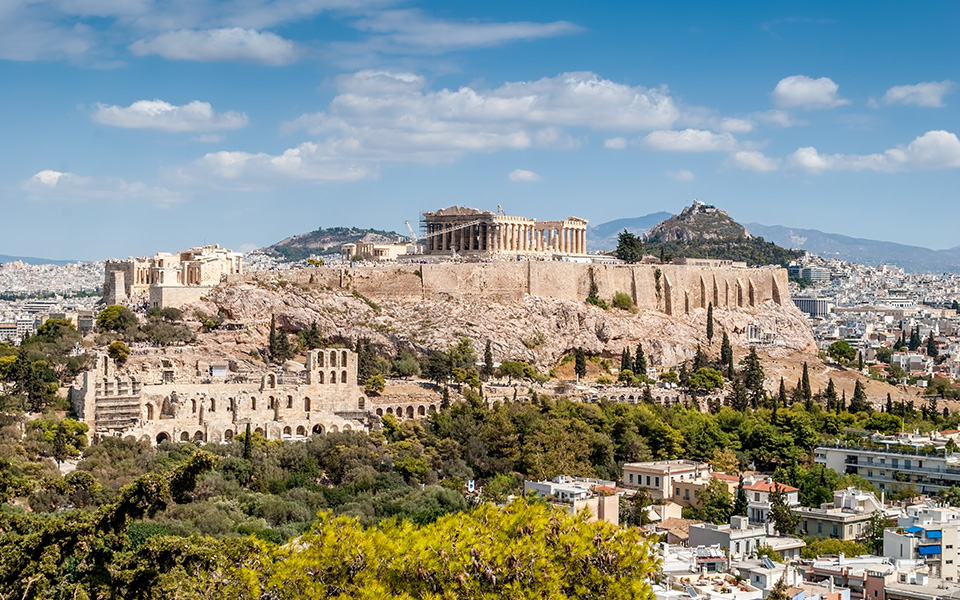
The Athenian Acropolis now features a special elevator, which will facilitate access to the monuments for wheelchair users, the elderly and visitors with mobility issues.
© Shutterstock
It goes without saying that it’s been a difficult year in so many ways. Global lockdowns saw a halt in our lives as we knew them, and that included travel and tourism. The COVID-19 pandemic meant border closures, international flights grounded, and not a tourist in sight at many of the world’s most traveled destinations – including Greece.
The country is usually visited by millions each year but successive lockdowns in 2020 and 2021 meant deserted beaches, shuttered restaurants and closed ancient sites. To say it was tough for the resident Greek population is an understatement, with one in five working in tourism.
Yet despite the hardships, Greece has proven its resilience by turning the break in tourism into an opportunity to change and grow; to prepare for a future more sustainable for tourists and locals alike.
Tourism Minister Haris Theoharis announced that the government aspires to open to tourists in mid-May, with strict safety protocols.
So, what changes can tourists expect to see in this much-anticipated return of freedom to travel?
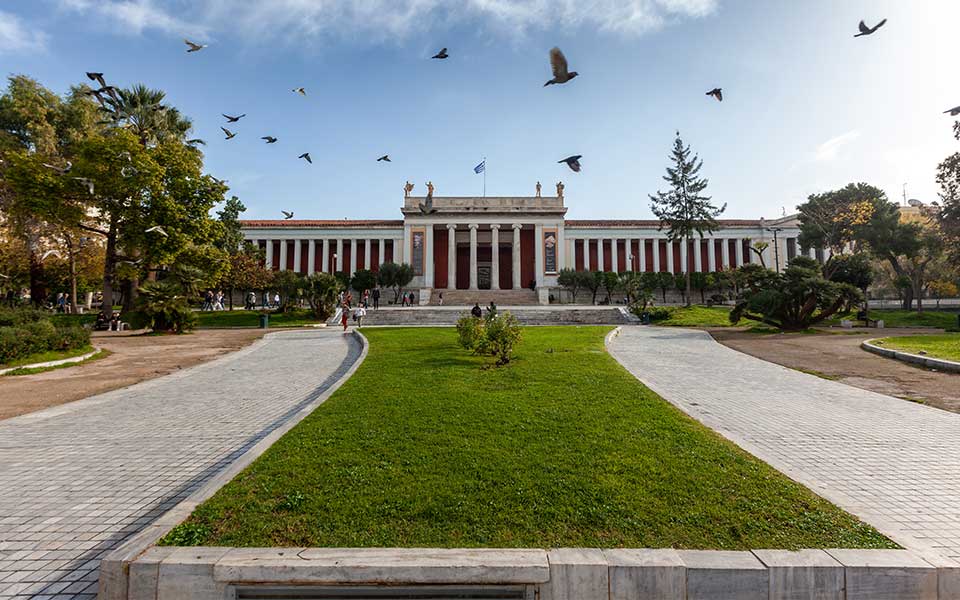
The National Archaeological Museum in Athens has extended its temporary exhibitions.
© Shutterstock
First up, there’s the archaeological sites that people travel from far and wide to see. There have been a number of recent changes, including COVID-19 measures that could result in a more fulfilling experience for visitors. Across many sites there’ll be staggered entry times, one-way systems, a cap on visitor numbers, and shaded areas for distance-friendly queueing.
In museums, wardens will carefully regulate and limit the number of people per room. Instead of trying to catch a glimpse of the bronze Zeus or Poseidon from behind a crowd of heads (and selfie-devices), several people may admire it peacefully and in its entirety from a safe distance.
Renovations, new additions and long-awaited openings have created an even brighter cultural landscape in Greece. Improvements include new pathways and “pause areas” at the Acropolis, so the most famous site in Greece is now more easily accessible; extended exhibitions at Athens’ National Archaeological Museum; the completion of the National Gallery’s eight-year refurbishment; restoration of the Temple of Olympian Zeus; and cleaning of the Tomb of the Unknown Soldier.
There have even been official openings, including sections of the Museum of Modern Greek Culture and the award-winning Alonissos Underwater Shipwreck museum.
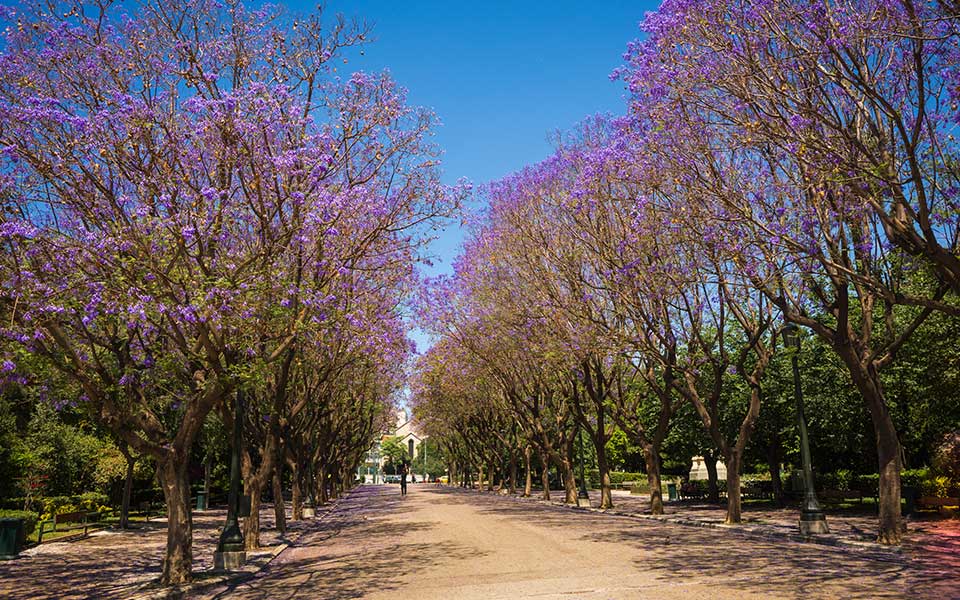
Blooming jacaranda trees in Zappeion, central Athens.
© Shutterstock
Greece is famous for its al fresco dining and coffee culture, which lends well to restrictions that prevent indoor dining. Tourists can enjoy Greece’s summer sunshine and beautiful landscapes as they dine safely outdoors with expected protocols like social distancing, increased hygiene measures and restricted numbers.
Despite a dramatic loss of revenue from the near complete closure of hotels, restaurants, cafes and shops during lockdown, business owners have shown great adaptability and optimism. New establishments are popping up and many existing places are refurbishing – especially in Downtown Athens.
One example of innovative adaptation is at hotel, The Alex. The Piraeus establishment began offering takeaway of their restaurant’s menu and it proved so successful, they’ve launched three delivery-only restaurants with spaces for locals to meet and relax.
Konstantinos Santikos, Managing Director of the Santikos Collection which includes The Alex, explains: “During these months in lockdown we had the chance to come closer to our neighborhood. Our initial goal was to create a hotel for locals to meet and interact but we realized that we need to be something more than a hotel: a flexible space where people meet, park, drink, eat, take out a different cuisine everyday.”
The renovations, including a Botanist Market selling local produce, will mean new, exciting concepts for tourists and locals to enjoy.
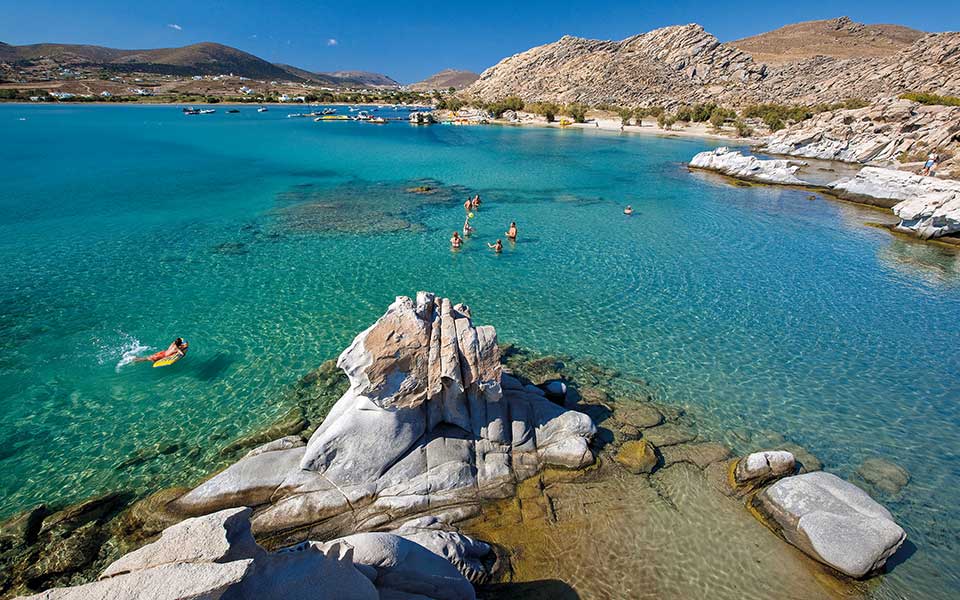
The famed Kolymbithres Beach on the north coast of Paros island.
© Visualhellas.gr
Sustainability efforts within the sector have increased too. More hotels have joined Clean Blue Paros, the initiative behind Paros becoming the first plastic-waste free Mediterranean island. Project manager Zana Kontomanoli said she thinks that’s partly because business owners had more time to consider and implement change, “even in a year with so much more financial uncertainty and stress.”
The new initiative Future Hotels has launched, which helps hotels in Greece – including small, independent businesses – become climate positive with sustainable action packages.
Founder Sotiris Kopatsaris states: “Future Hotels has launched at the most critical time for the recovery of tourism and travel with the aim to enable independent hotels to recover and thrive again while also making a global impact. Transitioning to sustainable operations is imperative not only as an answer to the ongoing climate emergency but also as a way to recover financially. Hotels that implement sustainability see higher occupancy rates, better profitability and happier guests.”
1 percent of Future Hotels affiliation fees go to local environmental and social causes. They plant 1,000 trees as part of its reforestation project in Madagascar for every hotel that joins, then another 1,000 trees per property per year.
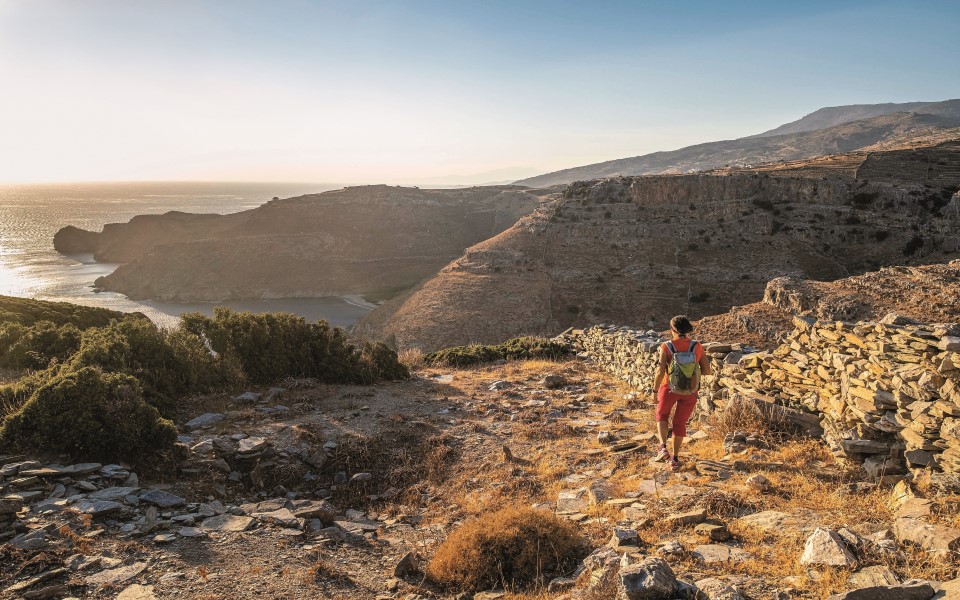
Cleared and signposted hiking trails crisscross the island of Andros, forming a network of 160 km.
© AFP/ Visualhellas.gr
While hospitality is shifting towards helping our planet, so are many locals. On the island of Andros, the volunteer-run organization Andros Routes – which has preserved, maintained and promoted the island’s hiking routes for 11 years to develop sustainable tourism – has launched a new project, Clean Green Andros. It aims to reduce single-use plastic and landfill waste, and increase recycling and composting.
Manager of the Andros Research Center and Coordinator of the Andros Routes project, Olga Karayiannis, explains: “Waste management has been for many years a big issue for Andros, as well as for many other places all over Greece. We felt it was time to do something for this important issue, making good use of the experience gained by the Andros Routes project and the two Andros On Foot Festivals.”
Olga says lockdown has “probably led us to more reflections on how we work here,” adding that locals have had more time to explore the island which “is an amazing positive effect of lockdown, one that holds hope for the future.”
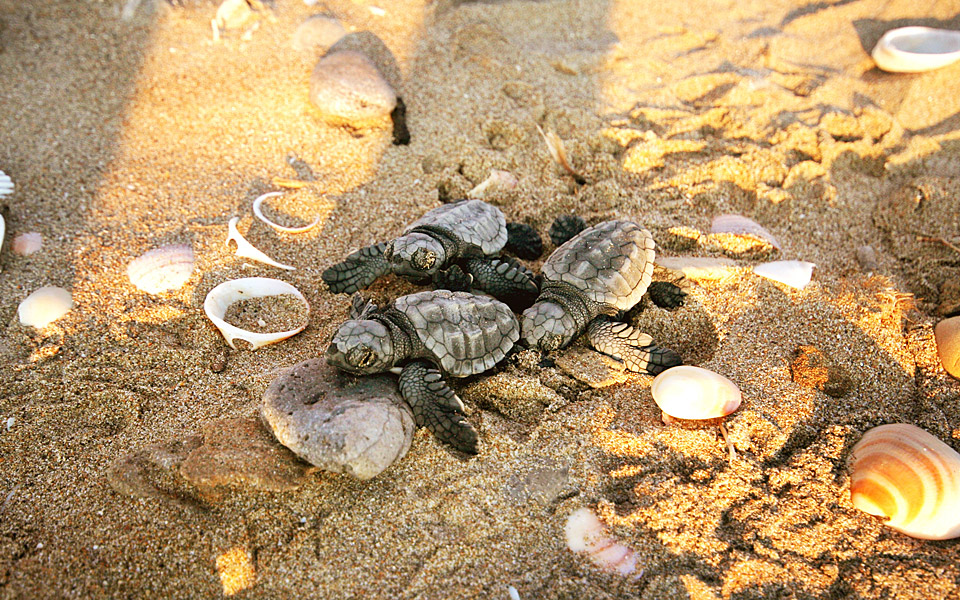
Endangered Loggerhead sea turtle (Caretta caretta) hatchlings on Zakynthos island.
© Kostas Papafitsoros / ARCHELON
Wildlife has flourished too. ARCHELON, the Sea Turtle Protection Society of Greece, says lockdown measures eased the egg-laying of sea turtles last summer (not including August which was busier with holiday-makers). Their researchers and volunteers survey daily the nesting beaches in Zakynthos, the Peloponnese and Crete.
Thomas Arapis, ARCHELON biologist reports: “There was a high number of loggerhead nests recorded along 74 kilometers of nesting beaches that we monitored in 2020.”
Though this wasn’t a result of lockdown, the increased nesting activity on Zakynthos has resulted in WWF strengthening its future protection program with more guards and increased visitor information.
On Santorini, it’s hoped recent caps on tourist and cruise ship numbers will continue, while Santorini airport’s new terminal and road may reduce future congestion.
Even in the Greek capital, municipalities have introduced “pocket parks” – small unused areas in the city turned into green spaces – and transformed some traffic lanes into bike routes in a bid to tackle air pollution.
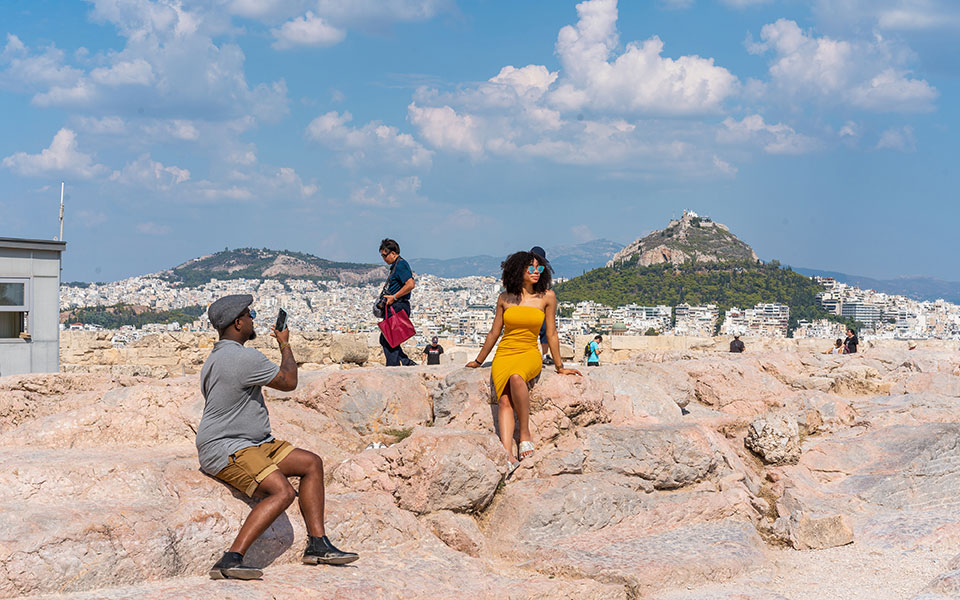
The measures taken over the past 18 months will ensure a better, more sustainable experience for tourists and locals alike.
© Shutterstock
The loss of billions of euros in tourism revenue meant lockdown has been financially tougher on Greece than some other countries, yet it seems to be leading the way with rethinking and reinventing tourism, short and long term, to reopen better than ever for tourists and locals.
Changes have been widespread, innovative and progressive as the country has tackled this unprecedented turn in the best way they know how: with the balance of grit, determination and hope that you will always find in Greece.
Ten must-do experiences in Athens, from...
A historic hotel redefines modern Greek...
Why not try a brief getaway...
A journey through Hania’s Venetian past,...